Improving spelling skills Worksheets for Ages 4-7
6 filtered results
-
From - To
Boost your child’s spelling abilities with our engaging worksheets designed specifically for ages 4-7. These interactive resources make learning fun, helping young learners master essential spelling skills through captivating activities. Each worksheet focuses on building vocabulary, enhancing phonetic awareness, and encouraging fine motor skills as kids practice letter formation. With a variety of exercises that cater to different learning styles, children will gain confidence and proficiency in spelling. Perfect for classroom use or at-home practice, our worksheets foster a love for learning while laying a solid foundation for future literacy success. Explore our collection and watch your child's spelling skills soar!
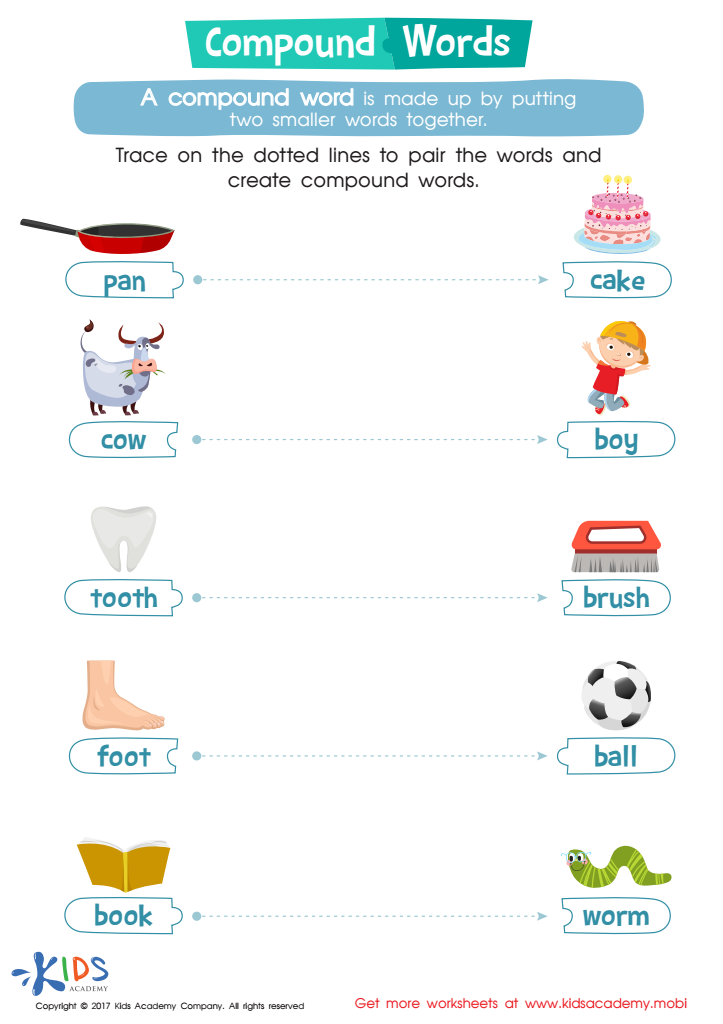

Compound Words Word Structure Worksheet
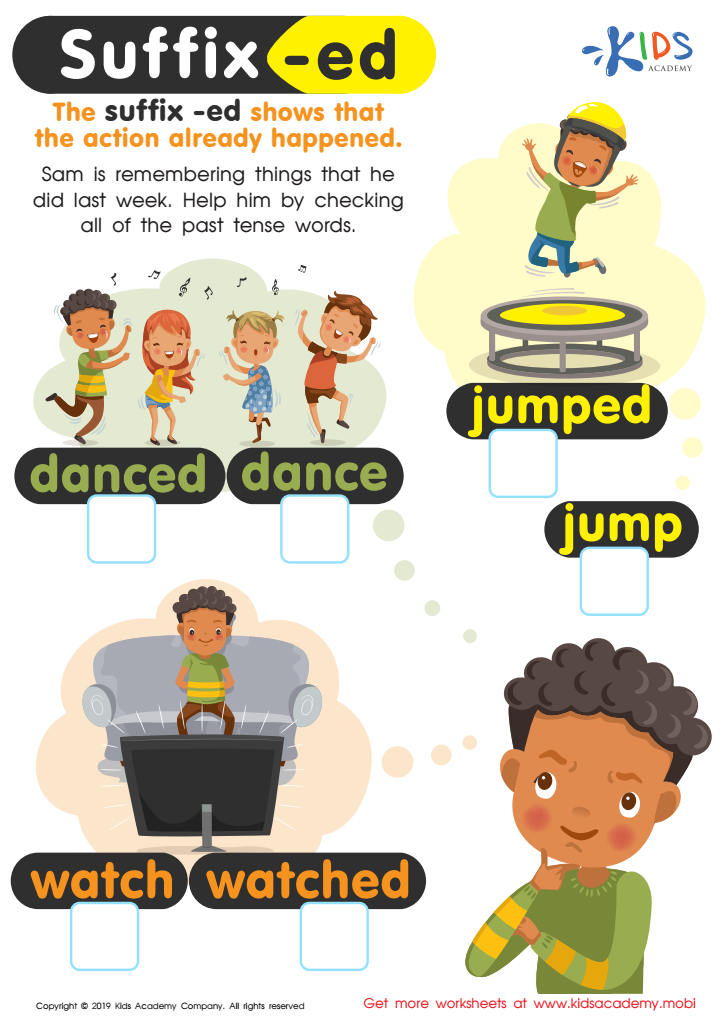

Suffix-ed Worksheet
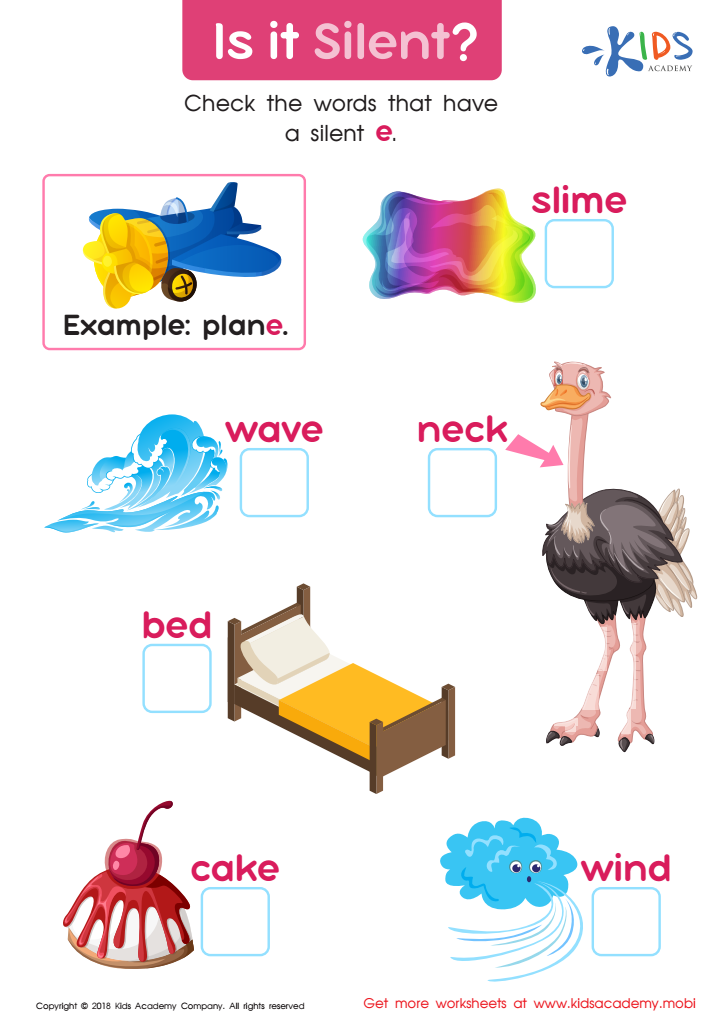

Is It Silent? Worksheet
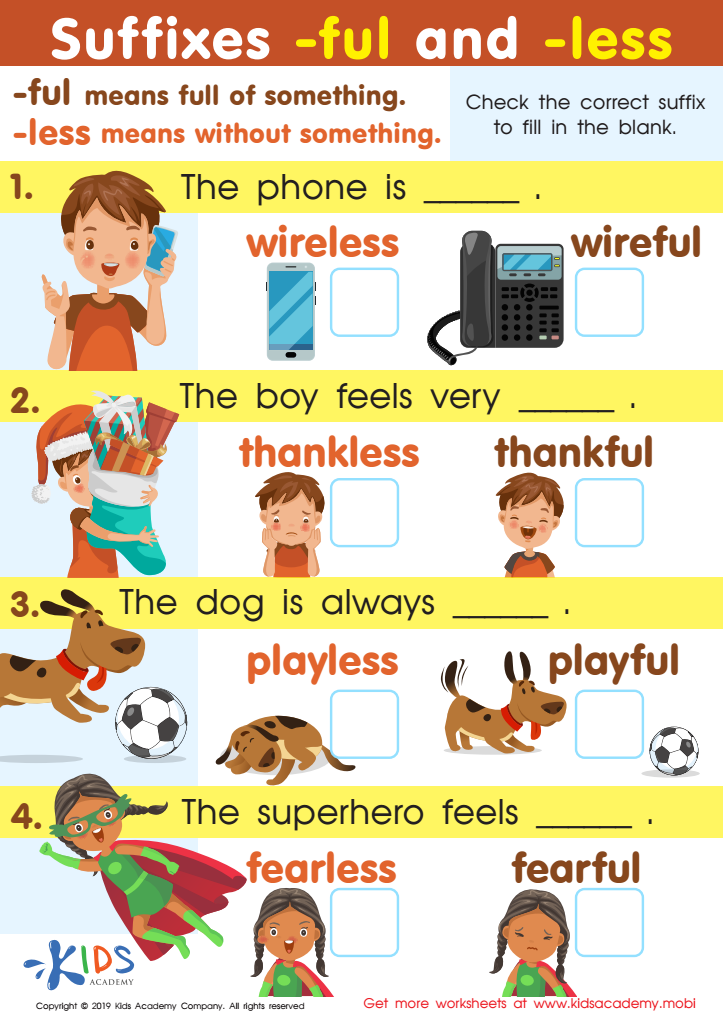

Suffixes –ful and –less Worksheet
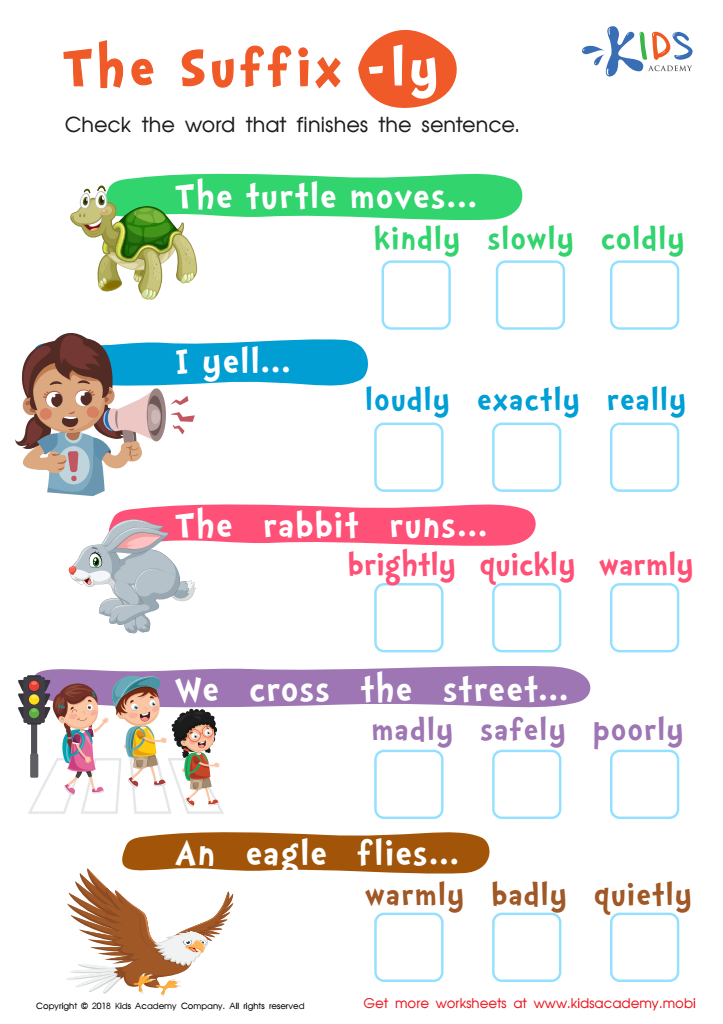

The Suffix -Ly Worksheet
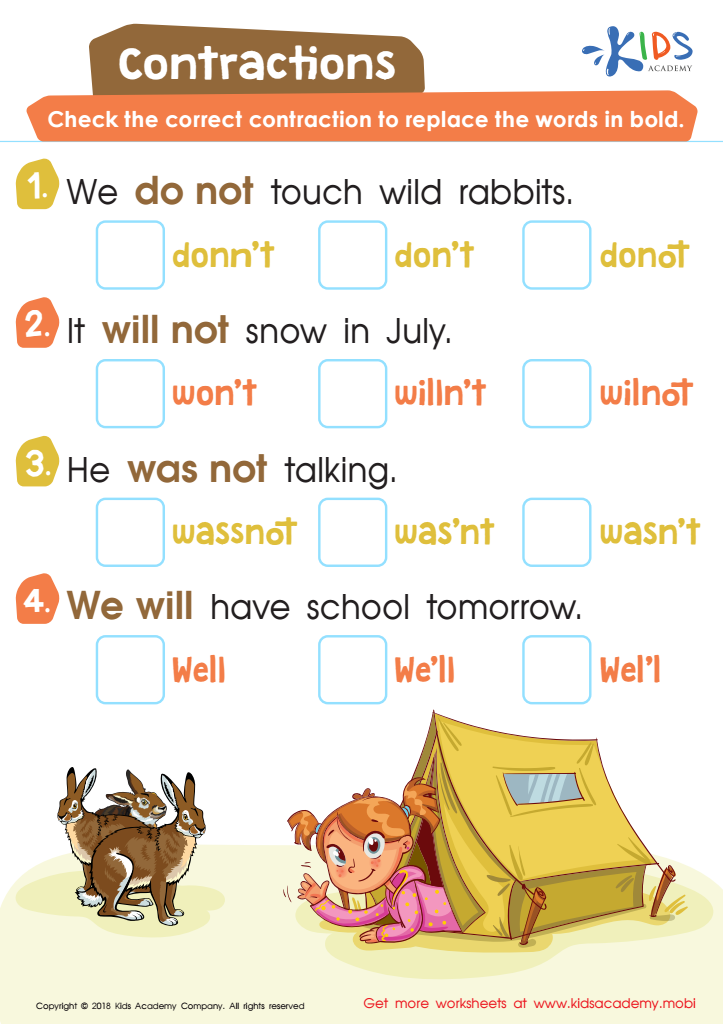

Contractions Worksheet
Improving spelling skills for children aged 4-7 is crucial for their overall academic development and future literacy. At this early age, children are in a prime phase for acquiring language skills, and strong spelling abilities directly enhance their reading and writing competencies. Spelling contributes to phonemic awareness, helping kids recognize sound-letter relationships, which is foundational for reading fluency.
Moreover, honing spelling skills fosters confidence in young learners. When children articulate themselves clearly through writing, they feel a sense of accomplishment that encourages further exploration of language. This self-esteem boost can translate into a love for learning and a positive attitude towards school.
Additionally, spelling proficiency aids in effective communication. Children who spell correctly are better understood by others, which is vital for social interactions and building relationships. Good spelling habits established early on can contribute to improved academic performance as children progress through school.
For parents and teachers, investing time in improving spelling skills is not just about academic achievement. It’s about equipping children with essential tools for their future success, both in school and in life. Encouraging spelling development in these formative years lays a solid foundation for critical thinking and creativity, setting the stage for lifelong learning.
 Assign to My Students
Assign to My Students















